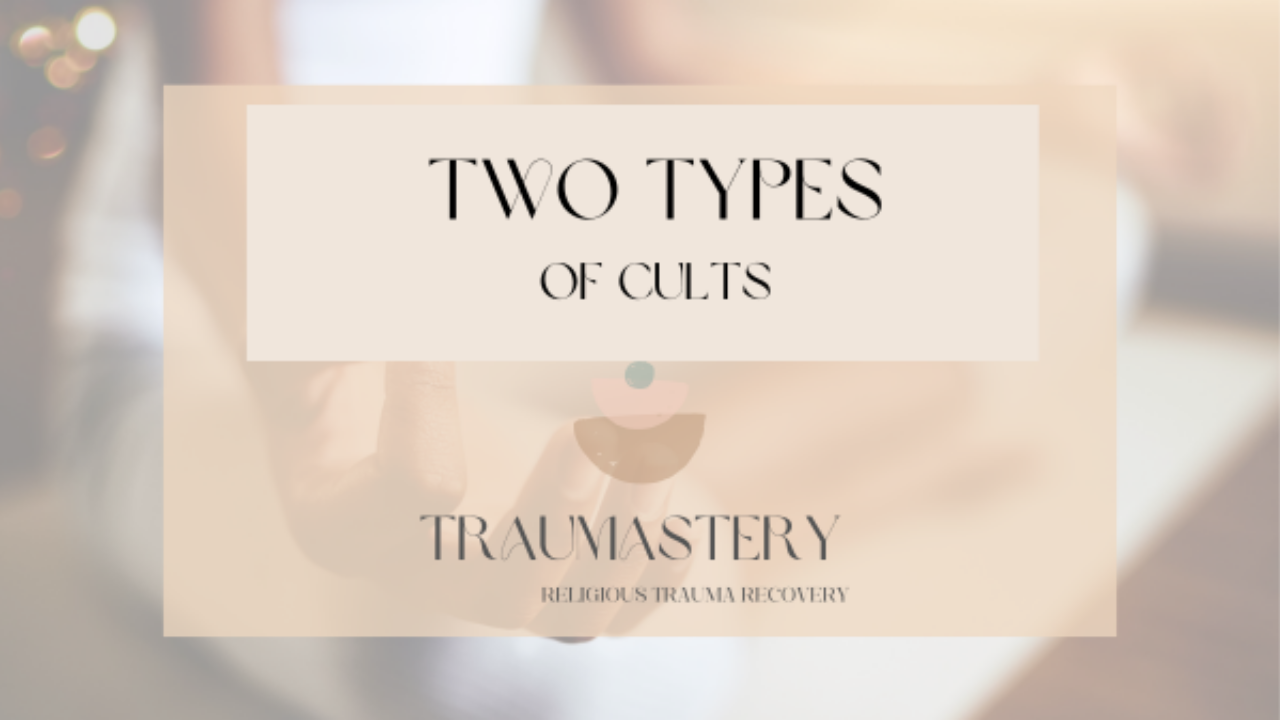Two Types of Cults

By Dr. Quincee Gideon, PsyD
We love de-mystifying cults over here at Traumastery, and one of the best ways to do so is to point out similarities so they don’t seem quite as “untouchable” and “mystical.”
While many cults may have very similar qualities, not all cults are the same. Surprisingly, many cults start with a great idea or a well-meaning purpose before it becomes toxic, coercive, and controlling. Once a group has crossed over into “cult land,” we find that they typically fall into two categories.
Here are the two different types of cults:
Mystically-oriented illumination:
A mystically-oriented illumination cult refers to a group or organization that focuses on spiritual enlightenment through mystical practices and experiences. Such a cult typically revolves around esoteric or mystical teachings, rituals, and beliefs, with the goal of attaining higher states of consciousness, spiritual awakening, or a direct experience of the divine.
Members of a mystically-oriented illumination cult may engage in various practices such as meditation, visualization, energy work, chanting, ecstatic dance, or other forms of spiritual exercises. The cult's teachings often involve esoteric or occult knowledge, drawing inspiration from different spiritual traditions, including but not limited to Eastern philosophies, Western mysticism, ancient religions, and New Age spirituality.
Some mystical cults may genuinely seek spiritual growth and provide a supportive community for their members. Nevertheless, it is important to use critical thinking, ask questions, conduct thorough research, and be cautious when engaging with any group that claims to offer mystical enlightenment or spiritual experiences. Check out our blog 4 Common Red Flags in Cults to help guide you in your cult “sleuthing.”
Service-oriented type
A service-oriented cult refers to a group or organization that places a strong emphasis on service to others as a central tenet of their belief system. Members of such a cult are typically encouraged or required to engage in acts of service, altruism, or charity as a means of spiritual growth or as a way to fulfill the group's mission.
In a service-oriented cult, service may be seen as a pathway to personal transformation, enlightenment, or salvation. The group's teachings and practices often revolve around the idea that by serving others, individuals can transcend their own ego, cultivate compassion, and contribute to the betterment of society.
As always and same with the mystically oriented illumination groups, make sure you have your alarm bells ready as you learn more and are thinking about joining any new group. While some service-oriented organizations may genuinely want to help and may give off good vibes and seem to promote positive values, others may exploit the good nature of their members or manipulate them for ulterior motives. It is crucial to critically examine the beliefs, practices, leadership structure, and potential harmful effects of any group before becoming involved. If you are worried that the group you are a part of may indeed be a cult, check out our blog: Am I In A Cult
If you are looking for ways to get both education and support, we’ve created our no-pressure community led by a clinical psychologist that specializes in religious trauma and cult recovery. You can read more about and register for A Year of Non-Magical Thinking here.


